Description

List of the 10 largest automotive suppliers in Germany
Without high-performance domestic automotive suppliers, Germany’s auto industry would never have been able to achieve its position on the world market. Conversely, the success story of the supplier industry would have been inconceivable without the spread of German cars around the world. The two developed hand in hand, so to speak. In Germany alone, there were 311,000 employees in the supplier industry for every 486,000 employees in the automotive industry in 2018. The largest automotive suppliers in this country also hold a leading position in the world. Some originated from simple workshops and craft businesses and have developed into internationally operating corporations. Overall, automotive suppliers in Germany are absolute cornerstones of the German economy. Here we provide an insight into our list and present the 10 largest automotive suppliers in Germany in detail.
1. Robert Bosch GmbH, Stuttgart
Robert Bosch founded a backyard workshop for precision mechanics and electrical engineering in Stuttgart in 1886. Over time, these humble beginnings developed into the largest automotive supplier in Germany and the world. Robert Bosch GmbH is more than a supplier – a conglomerate that also produces industrial technology, household appliances and power tools, energy and building technology. The group employs more than 400,000 associates in 60 countries worldwide, and nearly 140,000 associates at 85 locations in Germany. As an automotive supplier, Bosch stands for a wide range of products for automotive electrics and automotive electronics. Among other things, it supplies components for electric drives, injection technology, control technology, and exhaust technology for conventional engines, as well as brakes, ABS systems, driver assistance systems, and, more recently, solutions for connected mobility. Overall Robert Bosch is one of the most renowned automotive suppliers in the world and in Germany.
Update 2021: Bosch Group sales fell by 6.4 percent in 2020, mainly due to Corona. The automotive supply sector was particularly hard hit, with sales down 10 percent. In 2021, the company hopes to be able to put this dip behind it. In Powertrain Technology, electromobility is to become the core business.
Update 2022: In view of the shortage of semiconductors worldwide, Bosch will continue to invest heavily in this sector in 2022. For example, the existing semiconductor sites in Dresden and Reutlingen will be expanded further, and a new semiconductor test center will be opened in Penang (Malaysia).
Update 2023: Automotive supplier Bosch has discovered a new focus area for itself in 2023, with plans to invest over one billion euros in the heat pump business.
2. Continental AG, Hanover
Tire manufacturer Continental AG is the second largest automotive supplier in Germany and worldwide. Rubber formed the company’s business model from its beginnings in 1871, first from natural rubber, later from industrially produced rubber. Tires for passenger cars, commercial vehicles and motorcycles are still the mainstay of the business, while the automotive technologies sector with solutions for autonomous driving, driving safety and connected driving is being developed as a second mainstay. Schaeffler Holding has been the largest shareholder with a 46 percent stake since 2009. Continental AG and Schaeffler AG form sister companies in a corporate group. Continental has 241,000 employees worldwide and is represented at more than 540 locations in 60 countries.
Update 2021: In 2020, Continental celebrated its 150th anniversary. Nevertheless, it was a difficult year – due to Covid-19 and restructuring needs. 2020 brought Continental a double-digit decline in sales and a loss of almost one billion euros. Nevertheless, the company is optimistic and focuses on consistent cost reduction.
Update 2023: At CES 2023, Continental and Ambarella Inc, a specialist in semiconductors and artificial intelligence (AI), announced a strategic partnership. The two companies plan to jointly develop multisensor systems for assisted and automated driving. Production-ready solutions are expected to be available as early as 2026.
3. ZF Friedrichshafen AG, Friedrichshafen
In 1915, when ZF Friedrichshafen AG was founded, a gear factory and the airship Zeppelin GmbH were godparents. Vehicle transmissions were to be the business purpose, and so it has remained to this day. The company is a global leader in driveline and chassis technology and is one of the TOP 10 automotive suppliers on the globe. Nearly 150,000 employees and 230 locations in 40 countries represent its global presence, yet the company has remained closely tied to its main location. The Zeppelin Foundation, which is sponsored by the city of Friedrichshafen, is the main owner. Transmissions, chassis modules, axle drives, and driveline modules, as well as damping technology for passenger cars and commercial vehicles, make up ZF Friedrichshafen’s core business. This makes ZF one of the most important automotive suppliers in Germany.
Update 2021: The Corona year 2020 brought ZF Friedrichshafen a drop in sales of a good 10 percent and losses of several hundred million euros. The business operated in a difficult environment. The trend toward e-mobility is forcing extensive investments and adjustments. One highlight in 2020 was the acquisition of the U.S. automotive supplier WABCO. Things are expected to pick up again in 2021.
Update 2023: ZF Friedrichshafen is expanding its business: for example, the digital fleet management provider Intellic-Technologie was acquired. The Berlin-based startup is working on “smart tachograph” products.
4. Schaeffler AG, Herzogenaurach
Schaeffler AG is the core company of the Schaeffler Group, which is owned by the entrepreneurial family of the same name. Schaeffler manufactures parts for the automotive, mechanical engineering and aerospace industries under the INA, FAG and LuK brands. In the automotive supply sector, the FAG (ball bearings as a continuation of the activities of the formerly independent company FAG Kugelfischer) and LuK (disc and clutch manufacturing) brands are of particular importance. Schaeffler employs approximately 92,000 people and is represented in over 50 countries with more than 170 locations. Schaeffler Holding is the largest shareholder of Continental AG. Schaeffler Group and Continental have a “sisterly” relationship.
Update 2021: As with many automotive suppliers, 2020 was a loss year for Schaeffler – in terms of revenue (-12.7 percent) and earnings. With the Roadmap 2025, the company wants to realign itself. In addition to automotive supply, Schaeffler is also focusing on new strategic business areas such as wind turbine production. A new plant for this purpose was opened in China in May 2021.
Update 2024: The Schaeffler Group’s takeover of Vitesco AG, which focuses on drive technology, will enter the decisive phase at the beginning of 2024. The merger process is expected to be completed by the end of 2024.
5. HELLA GmbH & Co. KGaA, Lippstadt
The company name HELLA is almost a description of the product range. HELLA GmbH & Co. KGaA has focused entirely on vehicle lights and lighting. This has made HELLA one of the largest German automotive suppliers and one of the TOP 100 worldwide. Headlamps, lights and interior lighting for vehicles of all kinds still form the core business. Extending this business model, HELLA also produces camera-based driver assistance systems and develops electronic systems to increase efficiency, driving safety and comfort. HELLA is also one of Europe’s largest distributors of automotive parts, accessories and automotive services. The company employs nearly 39,000 people at over 125 locations in more than 35 countries.
Update 2021: With a drop in sales of over 14 percent and a net loss of 431 million euros, the automotive lighting manufacturer was particularly affected by Corona effects in 2019/2020. In the meantime, the worst is believed to be over. Great hopes are pinned on the China business – here, sales are planned to double within 5 years.
6. Brose Fahrzeugteile SE & Co. KG, Coburg
The history of Brose Fahrzeugteile SE & Co. KG began in 1908 with a trade in car accessories in Berlin. Since 1919, supplier parts for the automotive industry have been produced in Coburg. Today, Brose manufactures mechatronic systems and components for vehicle doors, seats and bodies. One example is electric drives for window regulators, sunroofs and seatbelt tensioners. For a long time, Brose restricted itself to the German market, the first foreign production facility was not opened until 1988. Since the turn of the millennium, a consistent internationalization strategy has been pursued. Today, Brose employs around 26,000 people. The company has 63 locations in 23 countries. This makes Brose one of the most relevant automotive suppliers in Germany.
Update 2021: In the 2020 fiscal year, Brose experienced a combination of Corona effects, restructuring and high upfront R&D costs. Sales slumped by 17 percent. Nevertheless, the company broke even – an exception in the industry. The Brose-VW joint venture Brose SITECH, as a new system supplier for vehicle seats and interior concepts, is expected to bring new momentum.
7. Fritz Dräxlmaier GmbH & Co. KG, Vilsbiburg
Fritz Dräxlmaier GmbH & Co. KG was founded in the 1950s in the midst of the economic miracle and has developed from a medium-sized business into a globally active company. Dräxlmaier specializes in supplying premium vehicles from a variety of manufacturers, producing electrical and electronic components, storage systems, interior equipment and vehicle electrical systems. Focusing on an exclusive market segment has made the company successful. Its customers include Bugatti, Cadillac, Jaguar, Lamborghini, Maserati and Porsche. The Dräxlmaier Group employs approximately 75,000 people and has a presence at 60 locations in more than 20 countries.
Update 2021: The Corona year 2020 did not leave Dräxlmaier unscathed. Short-time work had to be introduced, and sales fell by almost 14 percent. Nevertheless, the company is optimistic. Dräxlmaier considers itself to be particularly well positioned in the field of e-mobility. The Sachsenheim battery plant is already producing for Porsche. Another battery factory is being built in Leipzig.
8. LEONI AG, Nuremberg
Leonic goods are goods made of wire and wire constructions. Nuremberg has been a center of the leonic industry in Germany for almost 500 years. Nuremberg-based LEONI AG can trace its origins back to the 16th century. Today, LEONI is a leading manufacturer of wires, cables and wiring systems used in the automotive industry. Accordingly, the company is organized into two divisions: Wire & Cable Solutions and Wiring Systems. In addition to the automotive industry, other industries and the healthcare sector are also supplied with cable solutions. LEONI operates worldwide and employs about 95,000 people in 32 countries.
Update 2021: Even before Corona, LEONI had to face new challenges. The pandemic brought the traditional company a significant drop in sales in 2020. Efforts to realign the business are now being stepped up – also by selling parts of the company. For example, the Wire & Cable Solutions (WCS) Division is to be sold and the company is to be streamlined.
9. Eberspächer GmbH & Co. KG, Esslingen am Neckar
Exhaust technology, heating and air conditioning systems for vehicles form the business model of the Eberspächer Group in Esslingen. Eberspächer was founded in 1865 as a handicraft business for roof glazing. In 1932/33 the company started manufacturing vehicle heaters and silencers. Eberspächer also offered solutions in other areas at times. Today, Eberspächer operates exclusively as an automotive supplier and counts practically all the world’s renowned manufacturers among its customers. In addition to heaters and air-conditioning systems for passenger cars, the company also manufactures corresponding products for buses. The group has around 10,000 employees and is represented at around 80 locations in 29 countries worldwide.
Update 2021: Eberspächer is one of the few automotive suppliers that was able to defend its sales in the Corona year 2020 (a consequence of increased raw material prices for monoliths) and almost broke even. With its MOVE corporate strategy, Eberspächer aims to address the transformation in automotive engineering to clean and intelligent mobility.
10. Rheinmetall Automotive AG, Neckarsulm
Rheinmetall Automotive AG stands for the automotive supply division of the Rheinmetall Group, which is otherwise heavily involved in defence equipment. Automotive supplies account for more than 40 percent of Rheinmetall’s sales, with consolidated sales of €6.3 billion in 2019. The automotive subsidiary was formed in 1999 from the merger of the formerly independent companies Pierburg GmbH Neuss and KS Kolbenschmidt GmbH Neckarsulm. Pistons for gasoline and diesel engines in passenger cars and commercial vehicles are a production focus. Rheinmetall Automotive also supplies coolant pumps, exhaust gas recirculation and secondary air systems for the automotive industry. The company is divided into three divisions: Hardparts (essentially the piston business), Mechatronics (including modules for reducing emissions) and Aftermarket (spare parts business). Rheinmetall Automotive has around 11,000 employees. This makes Rheinmetall Automotive AG one of the largest automotive suppliers in Germany.
Update 2021: Eberspächer is one of the few automotive suppliers that was able to defend its sales in the Corona year 2020 (a consequence of increased raw material prices for monoliths) and almost broke even. With its MOVE corporate strategy, Eberspächer aims to address the transformation in automotive engineering to clean and intelligent mobility.
Picture source: Pablo Martinez

This information is included in the List
- Company name
- General contact data (address, e-mail address, telephone number, URL)
- Name of the management
- Serial letter suitable for addressing the management (e.g. “Dear Dr. Müller”)
- Sales figures for the years 2021, 2020, 2019, 2018, 2017, 2016 and 2015 (taken from the annual and consolidated financial statements)
- Employee figures for the years 2021, 2020, 2019 and 2018 (taken from the annual and consolidated financial statements)
- Sector classification & Field of activity
Note: If the sales and employee figures are not included in a company’s own financial statements but in the parent company’s consolidated financial statements, the data from the respective consolidated financial statements are provided.

Global Players, Hidden Champions, Medium-Sized Companies
Overall, automotive suppliers in Germany are absolute cornerstones of the German economy. Our list of the largest German automotive suppliers offers an insight into one of the most important German industries. The automotive industry accounts for a large part of the gross domestic product in Germany and provides jobs for several million people. The landscape of German automotive companies is very broad and diverse. Among the most important automotive suppliers are a number of globally operating groups that not only supply the automotive industry but are also active in other segments. In addition, our list naturally also includes the largest German pure automotive suppliers, which have risen to become true global players over the past decades. Furthermore, our database contains many so-called hidden champions, who are among the absolute world market leaders in their field. Often these are medium-sized companies that have specialized in certain components and supply almost all automobile manufacturers with their products. Many of these medium-sized companies are still in family hands and are closely linked to their region.
Picture sources: Lenny Kuhne, Moss
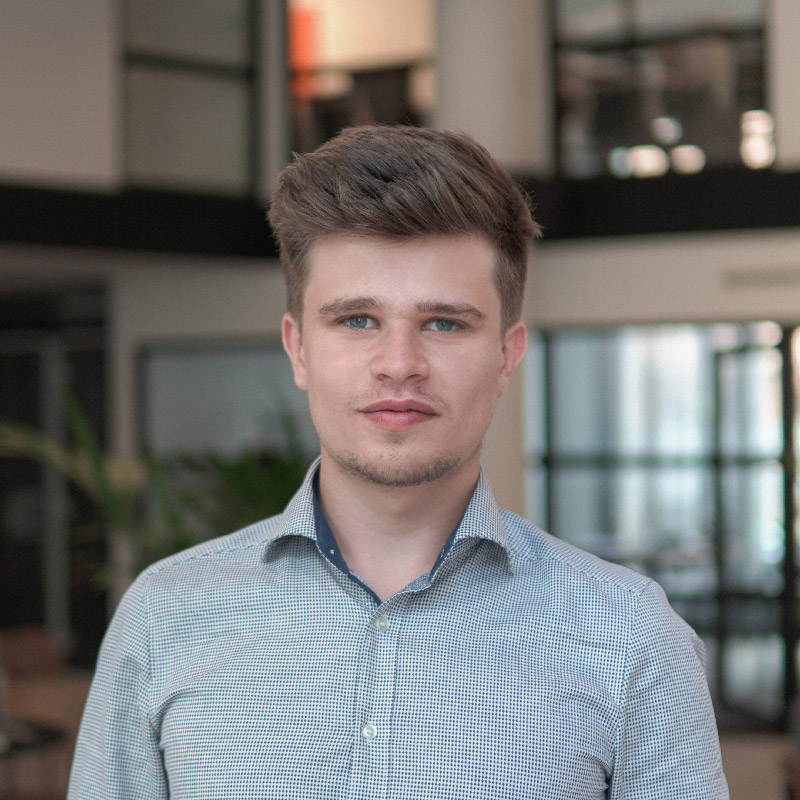
Any questions? Get in touch!
Leo Semmelmann, Founder
contact [at] researchgermany.com
+49 (0) 89 92927741
We are looking forward to help you in case of any questions, remarks and individual requests. Feel free to get in touch via email, live chat or phone. We can also offer you package prices and can create individual lists.

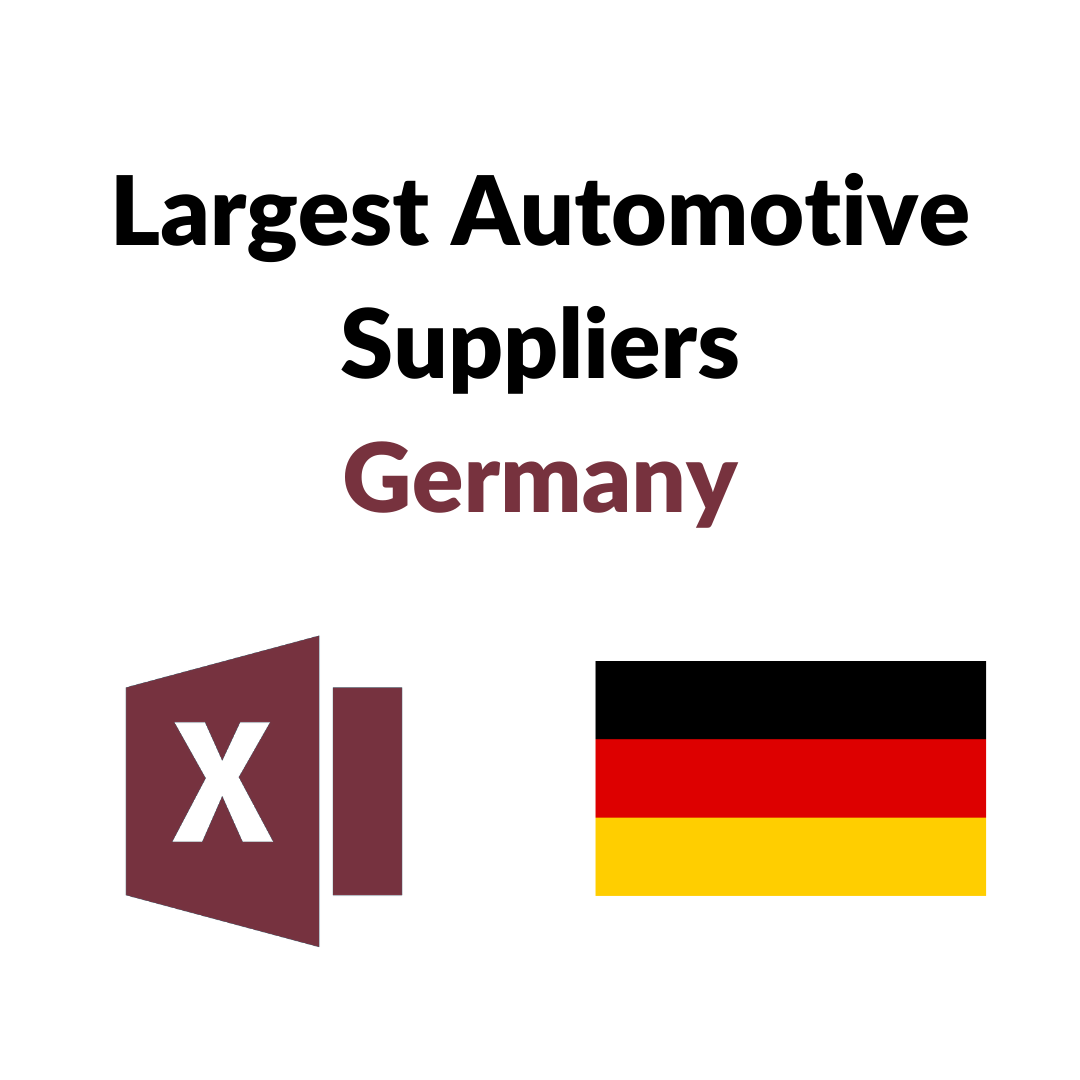
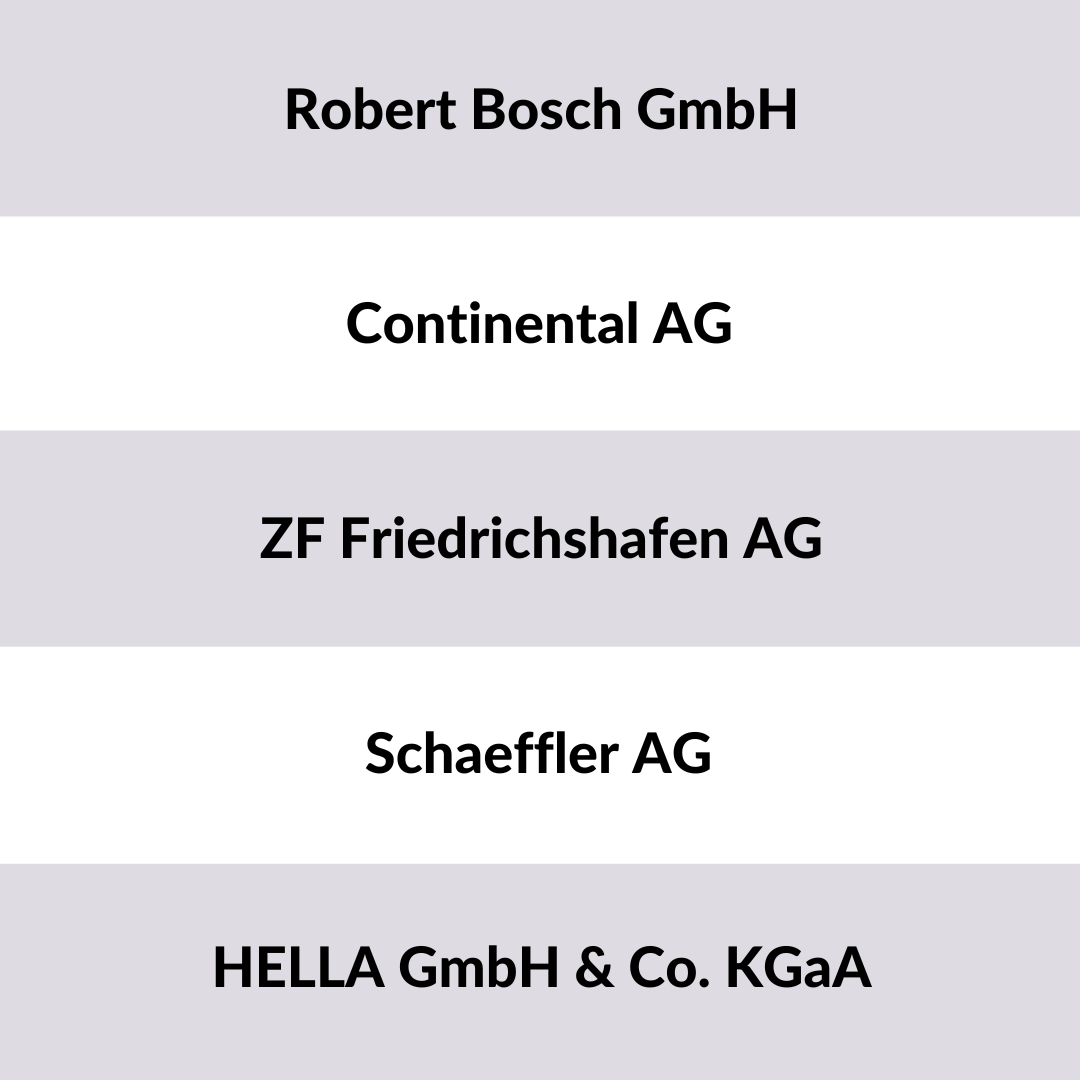
 Contains the 350 largest automotive suppliers in Germany with companies from the fields of electrics and electronics, drive systems, transmissions, chassis modules, damping technology, clutch construction, bodywork, glass, etc. The list is an excerpt from our
Contains the 350 largest automotive suppliers in Germany with companies from the fields of electrics and electronics, drive systems, transmissions, chassis modules, damping technology, clutch construction, bodywork, glass, etc. The list is an excerpt from our 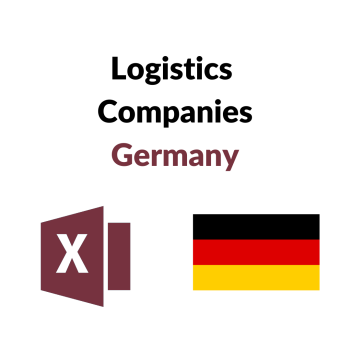

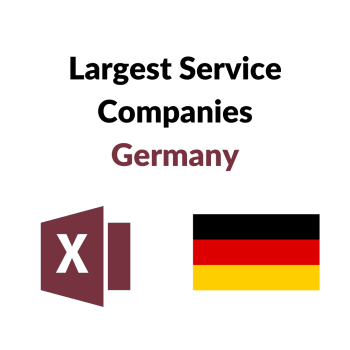
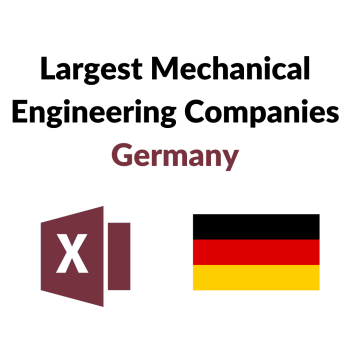
Sinan Öztürk (verified owner) –
My expectations were met 100%. Good data quality.